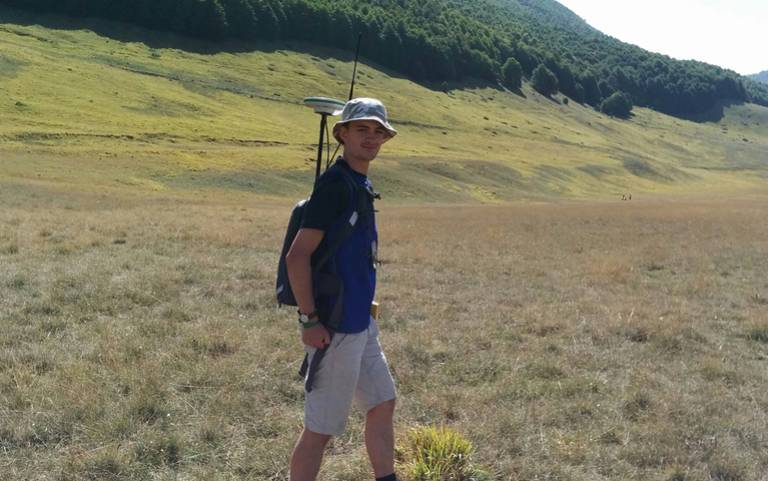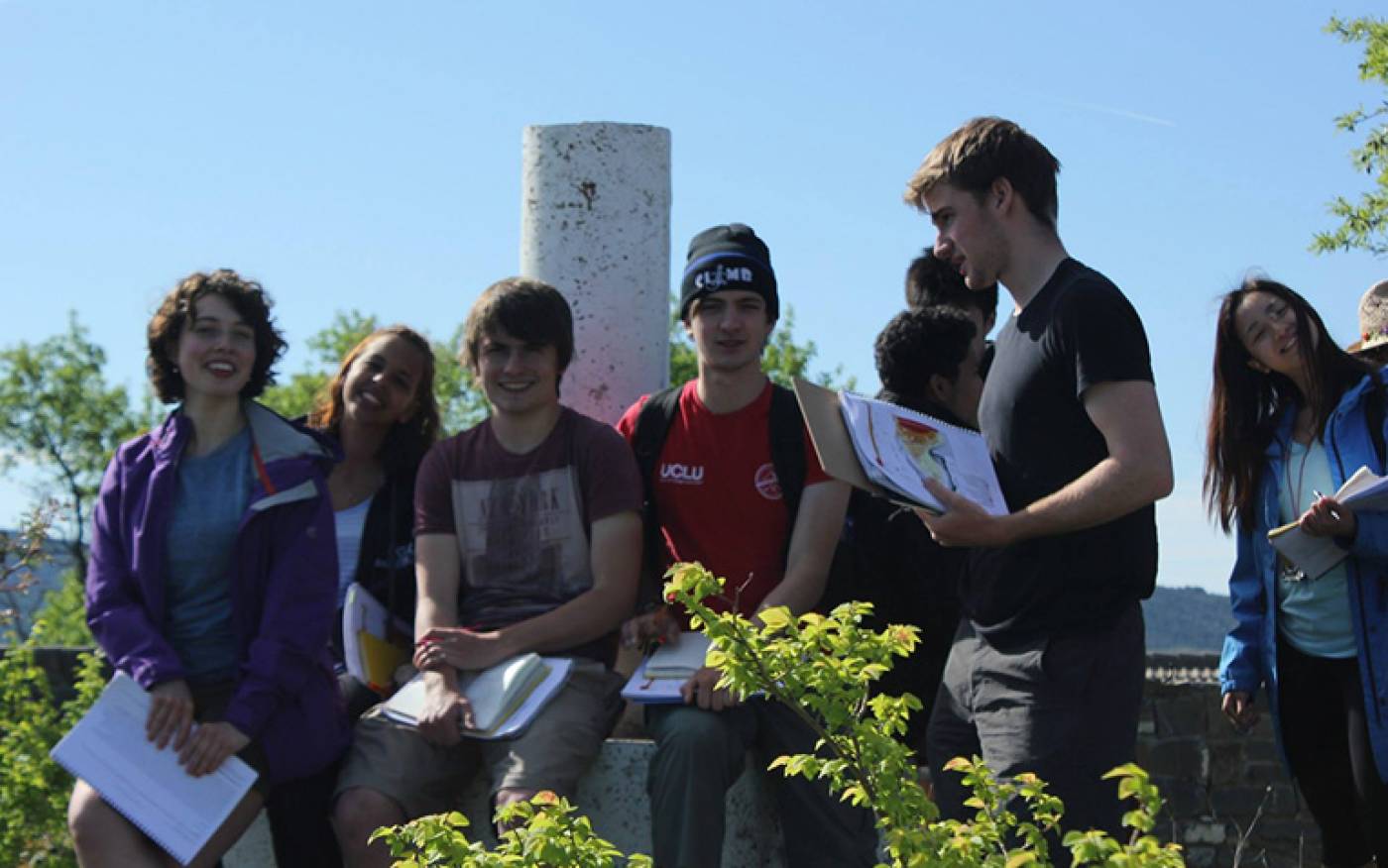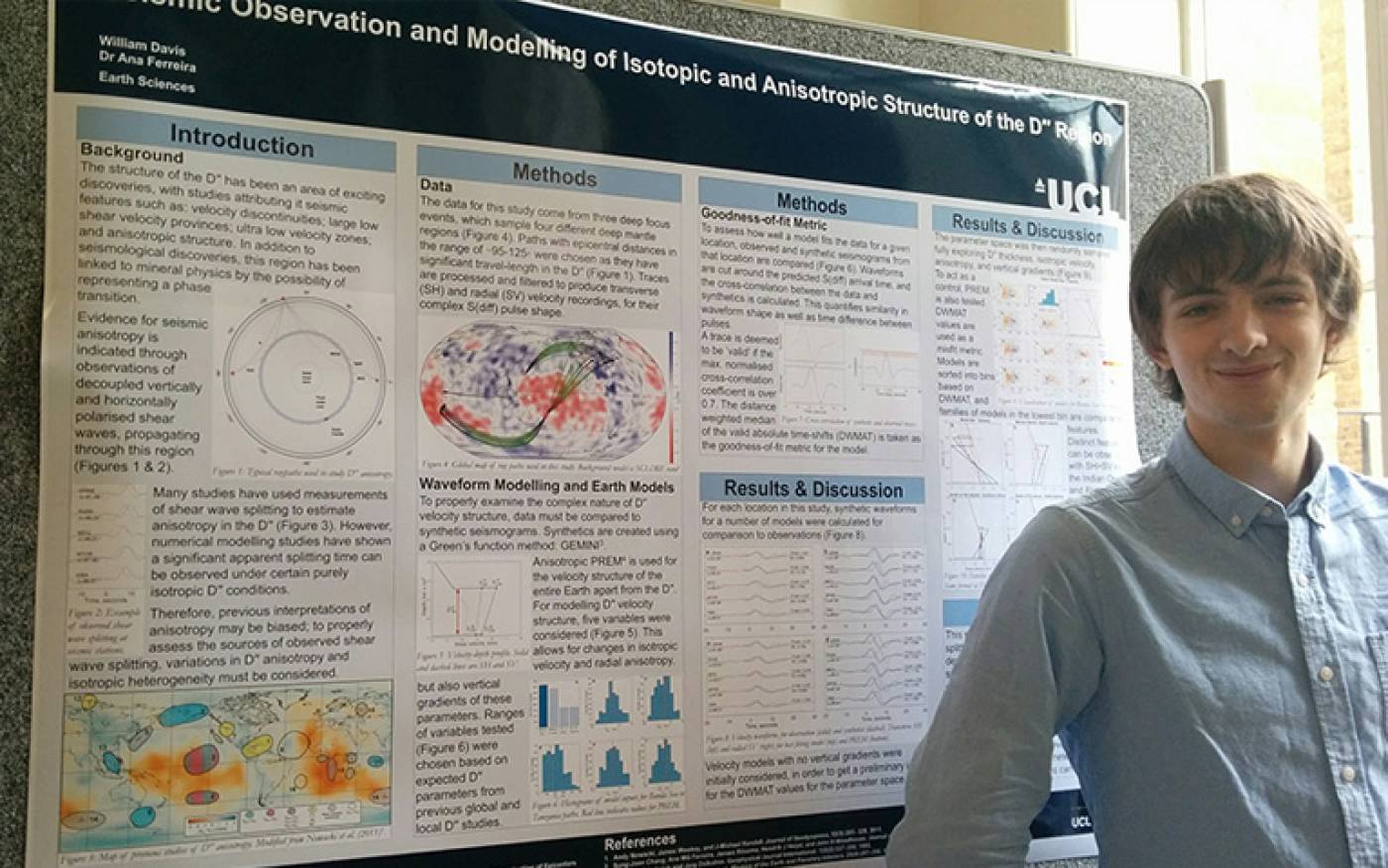Alumni Profile: William Davis, Geophysics class of 2017
7 June 2023
After completing a 1st class Masters degree in Geophysics in 2017, Will pursued a PhD in Earth Sciences at the Univ. of California, Berkeley and is now the J.W. Miles Fellow in Geophysics at Scripps. His research focuses on machine learning & stochastic differential equations.

Taking geodetic measurements during a field expedition in Italy.
William Davis gained a 1st class Masters degree in Geophysics at UCL in 2017. He then obtained a PhD in Earth Sciences from the University of California, Berkeley, and is now the John W. Miles Fellow in Geophysics at the Institute of Geophysics and Planetary Physics at the Scripps Institution of Oceanography, and an external researcher at RelationalAI. He writes at posgeo.wordpress.com
“I often think back on my days at UCL with great fondness, remembering my fellow students and working colleagues, as well as the inspiring mentors and teachers. Coming in as a student with a passion for mathematics and geology, I found that the course material and guidance at UCL enabled me to discover my intellectual niche which I’m still pursuing today.
At UCL, I loved the excellent classes which integrated various disciplines to provide a holistic approach to the study of the complexities of the Earth. Some of my fondest memories were times when I was able to work alongside other Earth Science students on group projects. Late nights at the Science Library, collaborating on seismology projects for classes taught by Dr Teh-Ru Alex Song and Prof Ana Ferreira, stand out in my mind. These group projects, along with the numerous field expeditions, fostered a great sense of camaraderie amongst everyone involved. The Masters level courses at UCL were another highlight of my time there. These courses, guided by experts in the field, encouraged us to delve into research-level geoscience concepts. One class that stood out to me was taught by Professor Ian Wood, focusing on the deep Earth and planetary materials. It was through intellectual discussions, challenging material, and exposure to real research in classes like these that I was inspired to pursue an academic career in Earth Sciences.

Listening to colleagues during a field expedition in Spain.

Presenting my poster for my Masters project thesis, which I conducted under the supervision of Professor Ana Ferreira.

Celebrating with my 2017 cohort, after presenting our Masters project poster presentations.

After gaining my PhD at the University of California, Berkeley.
Thanks to the support of my mentors at UCL, I was accepted to pursue a PhD in the Earth and Planetary Sciences at UC Berkeley. During my doctoral studies, I worked with Professor Bruce Buffett on geophysical problems related to the Earth’s magnetic field. The computational skills and project experience I gained at UCL proved invaluable during this time. Classes in MATLAB programming that I helped teach in UCL gave me a solid foundation to scientific computation and analysis. Furthermore, my Masters thesis research I conducted with Prof Ana Ferreira gave me a great introduction to the approach and methods of real scientific research.
Nowadays, I work as a researcher and the John W. Miles Fellow at the Institute of Geophysics and Planetary Physics at the Scripps Institution of Oceanography. Here, I’m researching new methods of integrating modern machine learning paradigms into computational geophysical estimation methods. Recently, as an external researcher at RelationalAI, I’m finding myself returning to seismology from a modern technology and big-data perspective. There, I’m exploring new ways of managing, utilising, and exploring large quantities of seismic data.
Looking back, I am grateful for the strong academic foundation and community I experienced during my time at UCL. The guidance and mentorship I received from the exceptional faculty at UCL played a crucial role in shaping my career trajectory. I still connect back with old alumni and professors whenever I’m visiting London, as they continue to inspire and support me in my ongoing research endeavors. I am excited to see where my career trajectory takes me, and I am grateful for the solid foundation provided at UCL.
Links:
 Close
Close

